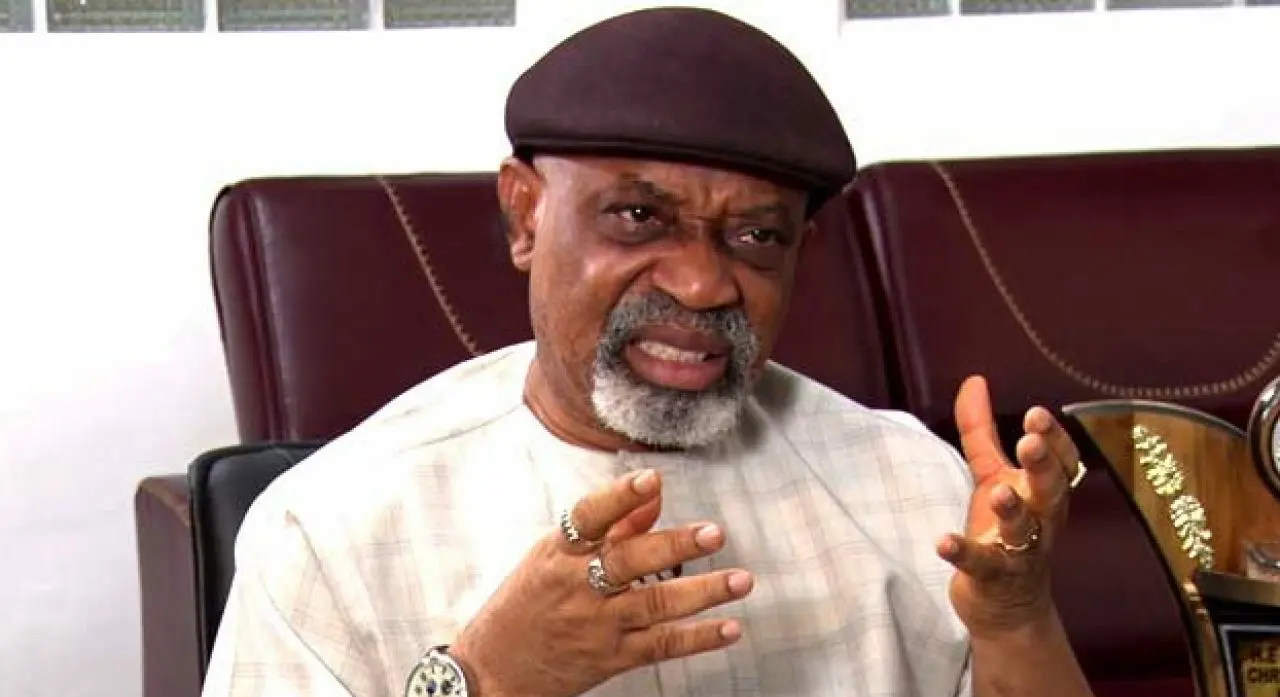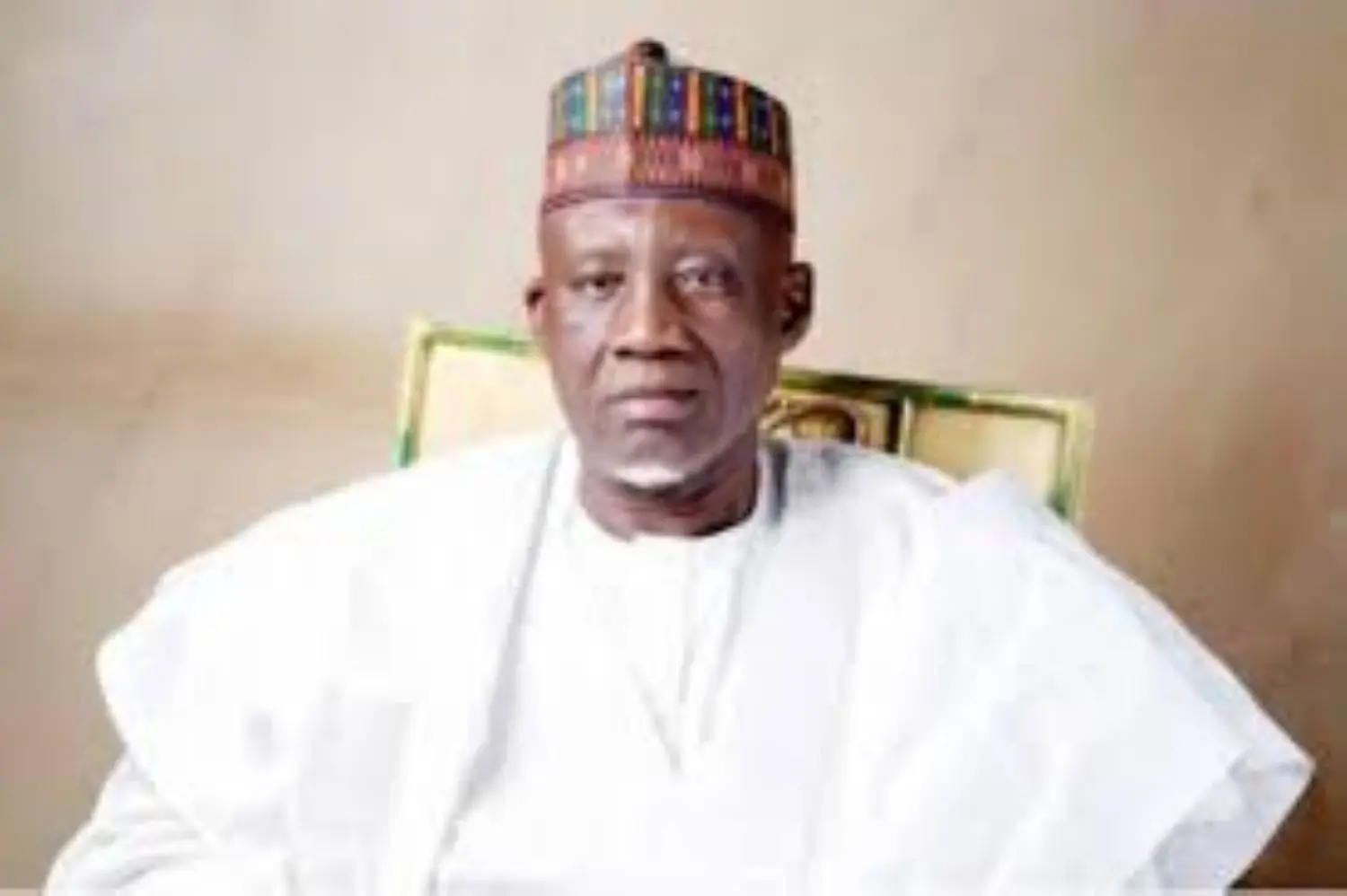
Former Governor of Anambra State, Senator Chris Ngige, pleaded with the Supreme Court to revisit its judgment on local government financial autonomy, saying it undermined the1999 Constitution of the Federal Republic of Nigeria (as amended).
Ngige who was the Minister for Labour and Employment from November 2015 to May 2023, argued that the judgment attempted to completely knock down Section 7 of the Constitution, which firmly puts the local government areas under the control of the states.
Besides the political consequences, he recalled that the same Supreme Court had earlier in 2006 made a pronouncement, warning the Federal Government against dictating to the states how to spend local government funds accruable to them.
The previous ruling by the Supreme Court under Justice Mohammed Uwais, Ngige reminisced, was made in a case filed by three state governments-Lagos, Abia and Delta-through their attorney generals, challenging then President Olusegun Obasanjo’s Local Government Account Monitoring Committee Act 2005.
A statement from his media office in Abuja, said the former Minister spoke weekend in Enugu, as the Guest Lecturer at the 29th Annual General Meeting (AGM) and Scientific Conference of the Association of Urological Surgeons, Nigeria , NAUS.
Speaking on the topic, “Local Government Administration and Primary Healthcare,” Ngige who is a medical doctor and health system administration specialist, said he does not support the direct payment of federal allocation to the local governments without statutory firstline deductions for payment of salaries and wages of local government workers, pensions and gratuities, traditional rulers entitlements and customary court allowances.
Citing his experience as a Governor, he recalled that council chairmen between 1999 and 2002 owed several months of salaries and allowances, and pensions and gratuities, not only in Anambra State, but almost all the states of the Federation.
He said most past council chairmen craved for acquisition of choice estates in Abuja, Lagos and even London, at the detriment of public health centres and schools in their area, where teachers were owed several months arrears of salaries and allowances, stressing that some chairmen even proved to be more corrupt than the Governors.
He opined that the judgment of the Supreme Court not only runs ultra vires of the Constitution but amounts to throwing away the baby with the dirty bath water.
According to him, Chapter 1 under the General Provisions (Part 1) of the Constitution, makes it very clear that “(1) This Constitution is supreme and its provisions shall have binding force on all authorities and persons throughout the Federal Republic of Nigeria.
“(2)The Federal Republic of Nigeria shall not be governed, nor shall any person or group of persons take control of the Government of Nigeria or any part thereof, except in accordance with the provisions of this Constitution.
“(3) If any other law is inconsistent with the provisions of this Constitution, the Constitution shall prevail, and that other law shall to the extent of the inconsistency be void.”
The two-time Minister said the constitution, which the courts are meant to interpret, clearly defines the boundaries of the powers of every institution.
Ngige said as far as the Constitution is concerned, only two federating bodies exist in Nigeria, namely the 36 States and the Federal Capital Territory (FCT) Abuja, with the Federal Government at the top.
“Each State of the federation was named in Part I of the First Schedule of the Constitution and the FCT in party II. The Constitution goes on to show the 768 local government areas in Nigeria in the second column of Part I of the First Schedule and six area councils in Part II of the same schedule.
“The constitution makes special arrangement for the local governments and puts them in the Fourth Schedule, and in addition to their functions in this schedule, asked the House of Assembly to make laws for them in Section 7. So, the Constitution puts the local governments in the bowels of the States.
“Section 162 (6) says that ‘Each State shall maintain a special account to be called “State Joint Local Government Account” into which shall be paid allocations to the councils in the State from the Federation Account and from the Government of the State.
“Hence, the Constitution makes the local government areas appendages of the States. Section 7 gives the House of Assembly the powers to make laws for the establishment, structure, composition, finances and functions of the local government councils. The only power given to the National Assembly is to make provision for statutory allocation of public revenue to local government councils in the Federation and it has so been done. The power of distribution lies squarely with the House of Assembly, working in tandem with the State Economic Board.”
Speaking further, Ngige dismissed the widely held notion of the existence of three tiers of government in Nigeria, stressing that more tiers of government exist in the country, including the town and village governments in the South and in the Northern part, the theocratic establishment, ruling through the Emirate Councils and Subordinate Councils, and others down the ladder.
He blamed the failure of the local government system in Nigeria on the docility of the Houses of Assembly and the flagrant inability of the Governors to adhere strictly to all the provisions of the Constitution, regarding local government, especially not establishing democratically elected councils and economic planning board, as stipulated in Section 7 (1) and (3) of the Constitution, respectively.
He equally attributed the failure of the local government system to the unwholesome activities of governors with itchy fingers, seizing and diverting council funds to other uses, other than public interest.
Ngige regretted that when Governors overstep their bounds, doing what the constitution did not permit, the Houses of Assembly keep silent, instead of calling them to order.
He insisted that the local government system would start working in Nigeria when Governors begin to obey the law and the Houses of Assembly become alive to their responsibilities, including calling erring Governors to order.
“Section 7 further says ‘(3) It shall be the duty of the local government council within the State to participate in economic planning and development of the area referred to in the sub-section and to this end, an economic planning board shall be established by Law enacted by the House of Assembly.’ The board will determine the utilization of council funds.”
“When I was Governor in Anambra, I operated with an economic planning board created first by an executive order and later, an executive bill that I sent to the House of Assembly. It was like the National Planning Commission of the Federal Government. The economic board will formulate the template and send it to the State Joint Local Government Account (SJLGA). Salaries, emoluments and allowances of local government staff, education, healthcare, security, among others were in the first line charge. Everything worked well, particularly in the primary health care centres where we employed many young doctors and other health workers for local government hospitals and primary health medical centres in the wards
“The SJLGA was strong and efficient under my administration, and we had the
State Economic Planning Board with all the Chairmen of all the LGA in the State as members. This ensured full participation of the LG council bureaucracy in the projections, both at that level and at the councils. The fund for LG administration and capital projects were thereafter remitted to the LG council account. In this way the people’s money was deployed for work for them. We can’t be moving from frying pan into fire.
“Under my administration, we used the SJLGA to offset the arrears of salaries, pensions and gratuities owed workers by my predecessor.
“It is good to note that this was made possible within the first 18 months of my stay in office. Remember that at the inception of this democracy in 1999, the local government chairmen took over from the Head of Personnel who the military used to govern the councils. When I took over in Anambra, local governments were in arrears of salaries, emoluments and allowances of staff, ranging between 15 to 22 months. I am not talking about pensions and gratuity. My predecessor, Dr. Chinwoke Mbadinuju (now late) could not do anything. The local government chairmen left one year before the end of his tenure.
Regarding primary healthcare, he frowned at the abandonment of more than 15,000 primary healthcare centres built across the country as constituency projects, and called on the State Economic Planning Boards to ensure that the abandoned health centres were revamped as quickly as possible.
He maintained that the local government system has a pivotal role in the basic healthcare system, which former Minister of Health, Olukoye Ransom Kuti transformed into primary healthcare system.
According to him, the primary healthcare system can be used to catch those cases that would be treated at that level, while those that cannot be treated there, would be referred to the secondary and tertiary healthcare institutions.
He, however, blamed the Commissioners for Health in States for the failure of primary healthcare system, notwithstanding that the National Health Act 2014, championed by himself and other medical doctors at the 7th Senate, namely Ifeanyi Okowa and Bukola Saraki, brought in the Federal Government to devote resources from its Consolidated Revenue, while the State would provide counterpart funding in vaccine for prevention and other aspects of primary healthcare.
He noted regrettably, that the States and local governments have been defaulting, refusing to honour their own obligations.
He appealed to medical doctors to stop cocooning themselves with fat medical books of Anatomy, Medicine and Surgery, but also to take interest in the government around them, to participate in politics, especially at the local government level, where they would affect lives most.


